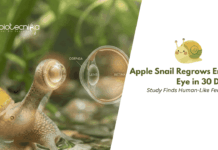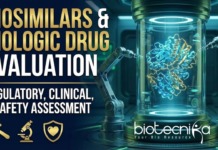Biotech Career Goals: Benchmarks, Safeguards, Milestones, and Goals for Biotech Students
When building a successful biotech or life science career, it is crucial to have clear goals, benchmarks, safeguards, and milestones. In this article, we will discuss the importance of setting biotech career goals and achieving milestones, as well as how to implement safeguards to ensure success in your career.
The Importance of Goals
Having goals is essential for personal and professional growth. Without clear goals, you may find yourself stagnating in your career, unable to achieve financial independence or pursue your passions. Setting goals helps you have a clear vision of where you want to be in your career, whether it is becoming a chief scientist or a senior scientist. These biotech-focused career goals can be both financial and professional, providing you with a clear direction for your career.
Achieving Milestones
Once you have set your goals, it is essential to break them down into achievable milestones. These milestones can include educational proficiency, technical proficiency, soft skills development, laboratory skills, and networking. By identifying the milestones required for your biotech career goals, you can create a roadmap for your career and track your progress along the way.
Table of Contents
Technical Proficiency
Technical proficiency is a crucial milestone for any biotech or life science professional. Depending on your area of interest, you will need to gain expertise in molecular biology, genetic engineering, bioprocess engineering, or related fields. Building technical proficiency will help you stand out in your field and increase your chances of career advancement.
Laboratory Skills
Developing strong laboratory skills is another important milestone for biotech students. Proficiency in techniques such as PCR, gel electrophoresis, culturing techniques, and data analysis will enhance your ability to conduct experiments and contribute to research projects.
Research Methodology
Understanding research methodology is essential for any scientist. This milestone involves knowledge of experimental design, hypothesis testing, and statistical analysis. By mastering research methodology, you can effectively design and conduct experiments, ensuring credible and reliable results.
Regulatory Compliance
In the biotech and life science industry, regulatory compliance is paramount. Familiarizing yourself with the regulatory environment governing biotech research and products is crucial to ensure ethical and legal practices. Complying with good manufacturing practices and understanding SOPs will make you a valuable asset to any organization.
Technical Adaptability
Keeping up with the latest tools and techniques in biotech is essential for career growth. Continuous learning and adaptability to new technologies like CRISPR, bioinformatics, and software proficiency (such as Excel or PowerPoint) will broaden your skillset and make you a versatile professional.
Interdisciplinary Collaboration
Biotech professionals must learn to collaborate across disciplines. By connecting different areas of expertise, such as biology, chemistry, and computer science, you can contribute to groundbreaking research and innovation. Your biotech career goals include standing at the boundaries of arts, science, and commerce, opening up new opportunities for financial and professional success.
Continuous Learning and Development
In the fast-paced world of biotech, continuous learning and development are crucial for staying relevant. Attending workshops, seminars, and conferences, pursuing certifications and internships, and engaging in online and offline training will help you stay updated on the latest advancements in the field. Remember that what is considered cutting-edge today may become outdated in a few years.
Biotech Career Goals: Networking
Networking plays a vital role in career advancement. Building connections with scientists and professionals in the biotech industry can open doors to new opportunities and collaborations. Utilize platforms like LinkedIn to expand your professional network and position yourself as a brand. Networking helps you stay informed and connected, ensuring that you are aware of relevant career prospects.
Personal Attributes for Success
While technical skills are essential, personal attributes are equally crucial for success in the biotech field. Here are some essential personal attributes that can greatly influence your career:
Biotech Career Goals: Teamwork
Working well as part of a team is essential in any professional setting. Collaborating effectively with colleagues and valuing their contributions can lead to successful research projects and professional growth.
Biotech Career Goals: Critical Thinking
Developing critical thinking skills enables you to analyze situations from multiple perspectives and make informed decisions. Embracing out-of-the-box thinking and finding innovative solutions will set you apart in the biotech industry.
Resilience and Adaptability
Being able to adapt to new environments, techniques, and challenges is crucial in a rapidly evolving field like biotechnology. Resilience helps you bounce back from setbacks and embrace change, making you more valuable to employers.
By setting clear goals, identifying milestones, implementing safeguards, continuously learning, networking, and developing essential personal attributes, you can pave the way for a successful career as a biotech or life science professional. Remember, every step you take towards your goals brings you closer to realizing your full biotech career potential.
If you have any questions, comments, or feedback, feel free to leave them in the comment section below. We value your thoughts and are committed to helping you succeed in your biotech journey.
Thank you for reading. Best of luck!
Author: Shekhar Suman































